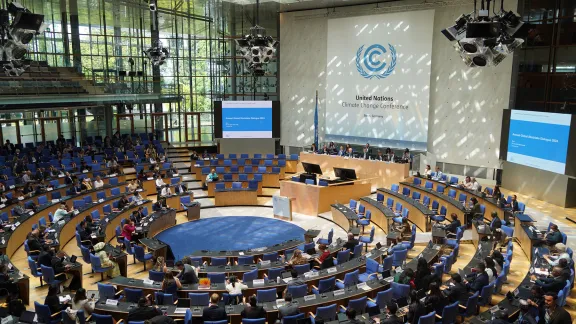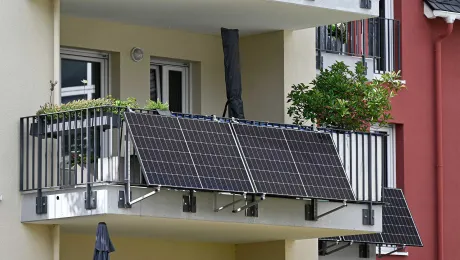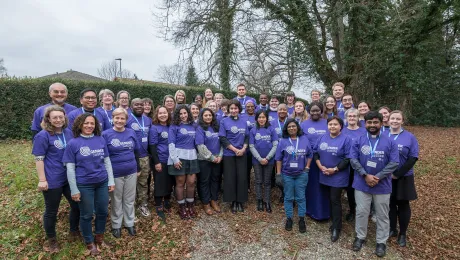
Plenary of the UN Climate Conference SB60. Photo: UNFCCC/Amira Grotendiek
LWF side event at UN Climate Conference
(LWI) - The UN Climate Conference SB60, taking place in Bonn, Germany, from 3-13 June, is a forum for parties to prepare negotiations for the 29th Conference of the Parties (COP) in Baku, Azerbaijan, in November. The Lutheran World Federation (LWF) and the World Council of Churches, Brahma Kumaris, the Evangelical Lutheran Church in America, and Act Church of Sweden organized a side event titled “Climate Justice & Gender Equality” at the conference.
“As we approach COP29, faith-based organizations can lead a stocktaking process on gender-responsive climate action,” said Elena Cedillo, LWF’s Program Executive for Climate Justice. “We must bring together civil society organizations, government bodies, academia, and international organizations, fostering an ongoing dialogue and ultimately developing a joint roadmap for gender-responsive climate action.”
The side event was an opportunity to present the preliminary results of LWF’s research on the implementation status of the UNFCCC Gender Action Plan (GAP) in 20 countries. It aimed to provide policy recommendations for integrating gender equality considerations into national climate policies and climate funds.
Climate change disproportionately affects women and girls due to factors such as age, poverty, ethnicity and marginalization, compounded by gender inequalities. Women often face barriers to influencing climate policy due to stereotypes and biases. Their perspectives are marginalized, hindering inclusive policies.
Women in vulnerable communities struggle with domestic responsibilities, limited resources and inadequate representation, hindering their participation in climate decision-making. In developing countries, women who rely heavily on local resources face challenges exacerbated by climate change, including disruption of livelihoods and increased care work. Despite these challenges, women play a critical role in managing resources and adapting to climate change.
Although LWF’s research shows that the average performance of the sample countries in implementing the GAP at the national level is inadequate and leaves much room for improvement, it also indicates countries successfully implementing gender-responsive climate policies and actions. Also, higher levels of gender equality do not automatically translate into gender-responsive climate policies.
Several renowned experts in the field discussed the findings during the side event.
“We need to systematically and continuously address gender gaps in responding to climate change and put women at the heart of environmental decision-making. That is one of the most effective mechanisms to build the climate resilience of households and communities,” said Ela Ionescu, UN Women representative for Europe and Central Asia.
“Faith-based organizations can be key agents of change,” said Juan Andrés Casas, National Gender and Climate Change Focal Point from Colombia. “They can advocate for gender equality and human rights and highlight women’s role as agents of change in climate action.”
“Raising public awareness and lobbying of decision makers is necessary before applying the Gender Action Plan (GAP) at the national level,” said Dr Michel Omer Laivao from the Ministry of the Environment, Ecology and Forestry in Madagascar and UNFCCC Focal Point. “And for those actions to be sustainable, the frameworks, regulations and the means of implementation must be explained to stakeholders and readily available.”


